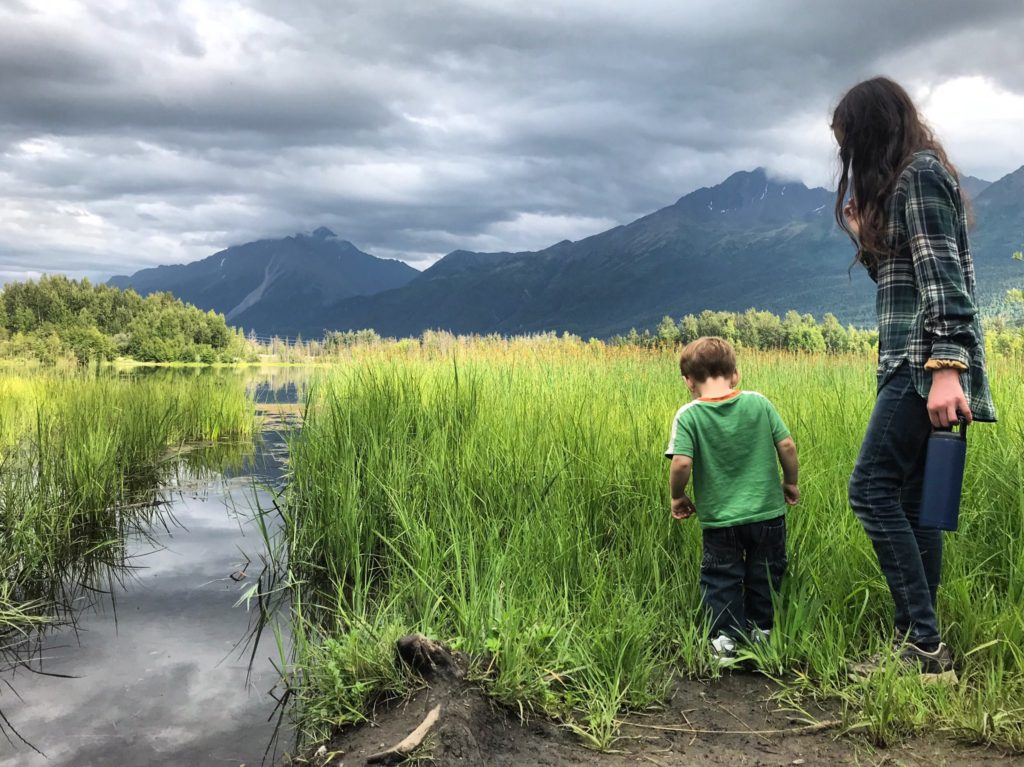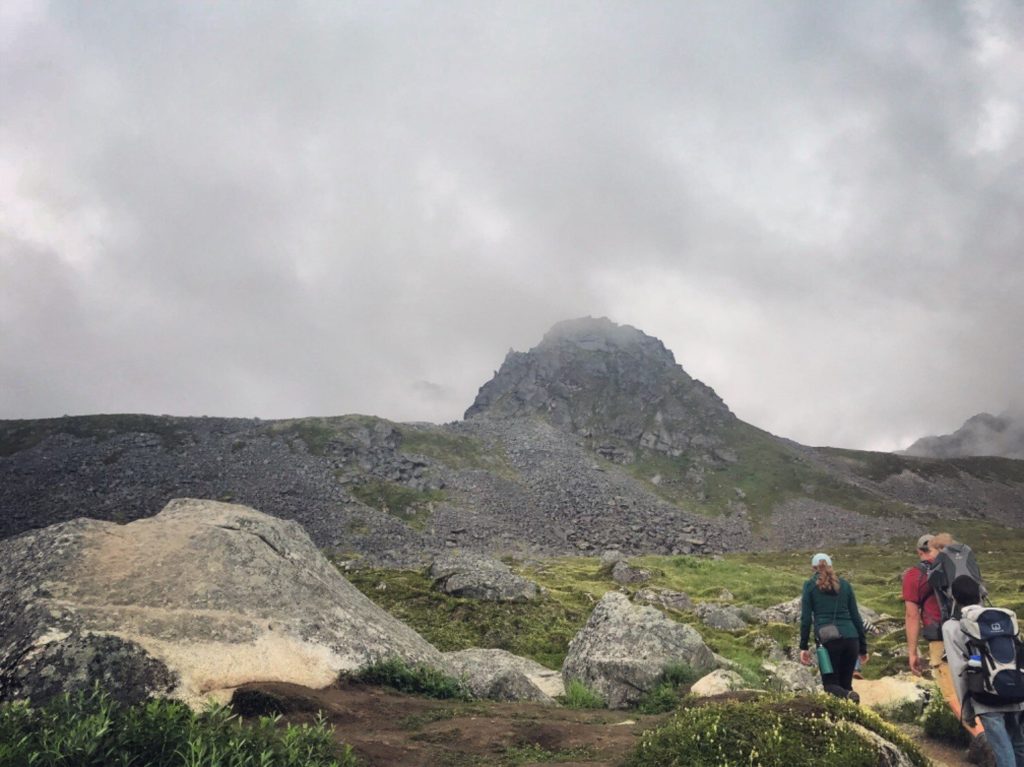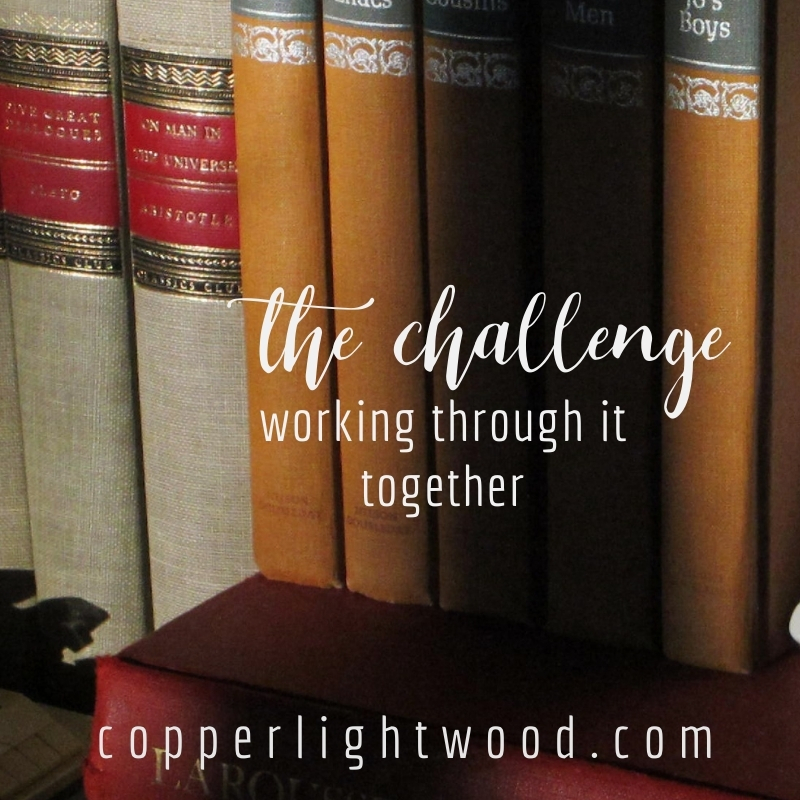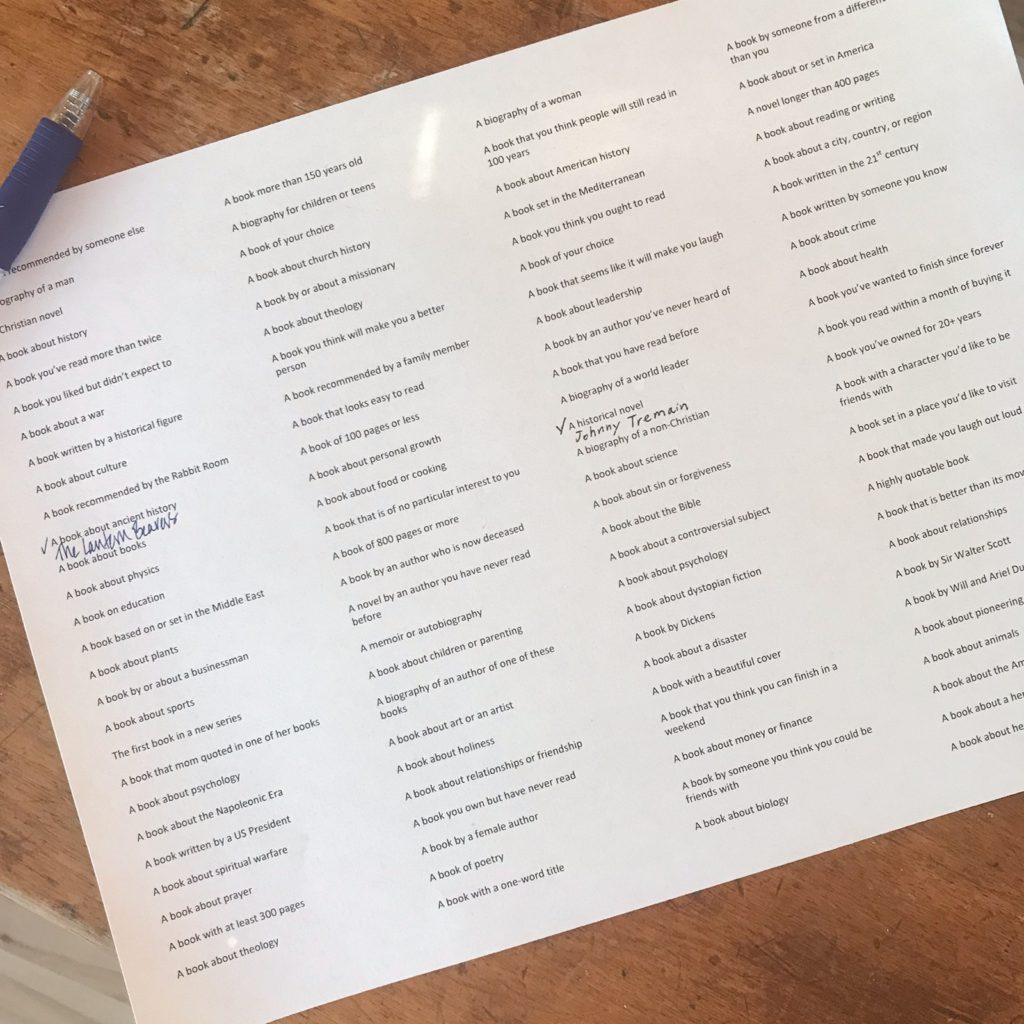We got 13 inches of snow last weekend, and shortly afterward our daughter lost a lens outside while sledding. Or maybe it was when they put sleds away. Or maybe it was somewhere in between. She had no idea, so we scoured the yard in ten-degree temps looking for it after she came in and told us. And then that night, in zero degrees, my husband and I looked again with flashlights.
Yeah, no. We didn’t find it.
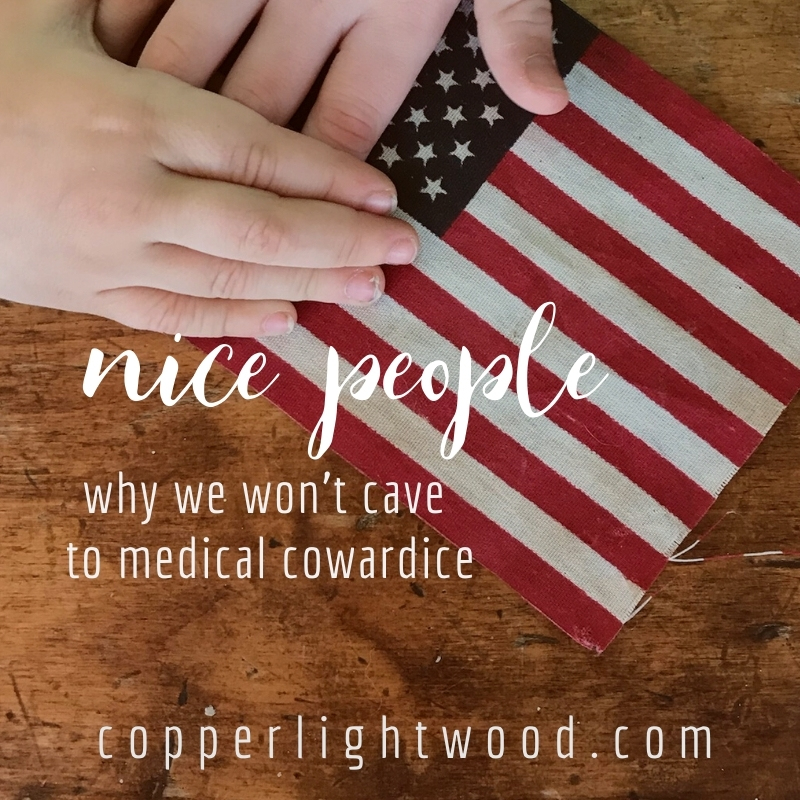
So we called to get it replaced. But no, you can’t just get it replaced; her prescription was one year and 49 days ago, and those 49 days make a huuuuuge difference because they mean she needs a whole new exam, according to the eye doctor’s office.
I told them we pay out of pocket, and we don’t do recreational medical appointments.
They gave us a little runaround but eventually acquiesced a little, to the point of making an appointment for me (because, Dorothy, we’re not in our 30s anymore) and during my appointment, my daughter could walk in to get the lens in her glasses replaced. So far, so good.
Until the lady said they require masks.
Now, just so you know…I have a medical exemption for at least three reasons. But this isn’t about medical exemptions, just as it isn’t about medical care or science or critical thinking.
This office didn’t care about medical exemptions; they require masks.
“So,” I asked, “your office discriminates against those who cannot wear masks for medical reasons?”
“No, this is a private practice,” the receptionist said. (I’m pretty sure this is the same one that answered the phone earlier with, “Hellocanyoupleaseholdthanks.” It wasn’t a good start.) “It’s Dr. Whatshisname’s policy.”
“Oh! So it’s Dr. Whatshisname who discriminates against people with medical exemptions?” Yeah, I’m that fun at parties, too.
After a few seconds of bluster and stammering, she went for the plandemic talking points about numbers and “safety” that have nothing to do with medical care, science, or critical thinking, as I already mentioned.
“If Dr. Whatshisname believes all that,” I said, “he’s not someone I would trust with any form of medical care for my kids or myself. Please cancel our appointments.”
And that’s when she hung up on me. (I bet she’s real fun at parties, too.)
Now, I know there are a lot of nice people out there just doing their jobs. Just sending their kids to school. Just going to work, just not rocking the boat. But don’t expect me to believe that these people are wearing masks for the health of others, because it is their perpetuation of the myth that prevents people like me who cannot wear a mask from getting medical care.
“I don’t wear it for me, I wear it for you” is a bunch of self-righteous BS and I’m over it.
Next we tried Dr. Whosit, recommended by one of my best friends. Made appointments. It looked good. And then they said to bring a mask.
Whoops.
“I can’t wear a mask, and I won’t make my kids wear them, either,” I said.
“Well, it’s our policy, blah blah, can you bring a medical exemption letter?”
“I don’t need to bring a medical exemption letter,” I said. “My medical history in other areas is none of your office’s concern.” And they know that, as does every other medical office, but they’re hoping you and I don’t know that, of course. (Hellloooo, HIPPA!)
“Let me find Dr. Whosit so you can speak to him.” Great, thanks.
A minute on hold, and Dr. Whosit comes on.
“Hi, can I help you?”
I explain our situation. Dr. Whosit is nice but admits that he just does what the State tells him. I answer that I am not going to the state for my medical care, I am looking for someone who actually practices medical science instead of political science in their patient care.
“Well, it’s only for a little while in a small room. Couldn’t you wear a mask for just that time?”
“No, I am not going to suffocate myself or my kid for just a few minutes. Would you?”
No, he wouldn’t, but he was asking me to.
And this is the (lack of) logic we are encountering at every level of this. These people would call OCS or DFYS in a heartbeat should you intentionally cause lung damage to your child or restrict their oxygen in any non-state-approved way, but they balk when you stand up against them for wanting to do it.
The reason they balk is because so many people have no problem actually allowing other people to restrict their children’s oxygen. How dare we question those from their lofty position on a high horse?
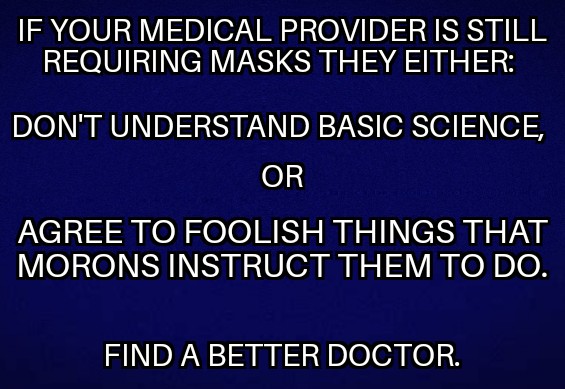
I know, they’re just nice people, refusing to rock the boat while simultaneously making excuses for all the leaks in it. This is okay. It’s fine, we’re all fine…and the water just keeps rising, because nice people keep allowing it to.
King Hezekiah was a nice person, too. In the line of Biblical kings, he was actually a pretty good one.
One day Hezekiah gets sick and is about to die. So he prays, and God not only heals him but also provides a miraculous sign to prove that he’s healed. Pretty good, right?
But then Hezekiah gets an impressive visitor who has heard about his sickness, and sends envoys with letters and gifts to him. Hezekiah responds by showing off everything he has, exposing his assets and weaknesses to this foreign entity.
He makes himself look good while thoughtlessly endangering future generations.
But maybe it was unintentional. Maybe he just wasn’t thinking. Maybe he felt sorry about it later.
Or maybe not. Let’s read:
Then Isaiah said to Hezekiah, “Hear the word of the Lord: Behold, the days are coming, when all that is in your house, and that which your fathers have stored up till this day, shall be carried to Babylon. Nothing shall be left, says the Lord. And some of your own sons, who will come from you, whom you will father, shall be taken away, and they shall be eunuchs in the palace of the king of Babylon.”
Then Hezekiah said to Isaiah, “The word of the Lord that you have spoken is good.” For he thought, “Why not, if there will be peace and security in my days?”
– 2 Kings 20:16-19
Why not? As long as it doesn’t affect my time, and my life is easy, and I’m not inconvenienced, who cares?
I’m pretty sick of nice people, to tell you the
truth. Nice people are giving up our freedoms, rolling over so evil people can
abuse our children and convince us that it’s the (self)right(eous) thing to do.
I found some leads and made appointments with a new eye care center who is so
popular they are booked out for quite a while. Turns out, supporting freedom is
actually pretty good for business.
But friends, this is a serious issue: Where are we
capitulating? Where are we giving an inch, and they are taking a mile?
We are dealing with vax mandates this year because so many of us capitulated to
mask requirements last year.
It might be inconvenient to find a new doctor or optometrist or dentist or hair stylist. I know it’s not easy. It wasn’t easy for us when we moved our whole family last year to a new medical provider, a different church, and new social media platforms. Hey, I can’t even remember our new PO Box number. Change is hard, I get it.
But we’re not called to do easy. We need to remember that. We’re called to do obedience, and to stand for freedom. And if we don’t do it now, our kids and grandkids won’t have a choice about it later.


